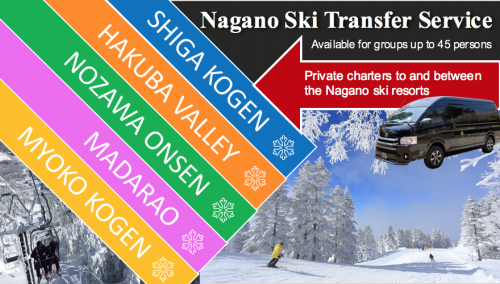12 Types of Hotels and Accommodations in Japan: Explained
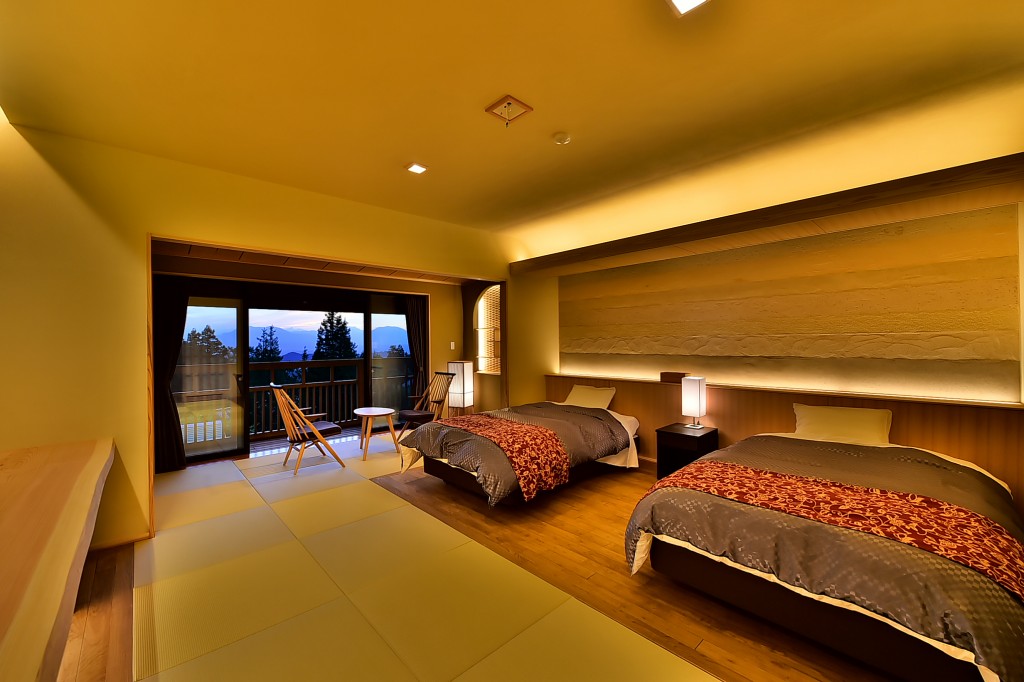
Japan welcomes a huge number of international visitors each year. When combined with the domestic travel of many Japanese around the country for business and tourism purposes, there is a massive number of people requiring accommodations around Japan. As such, there is also a huge range and variety of accommodation servicing the needs of various types of travelers.
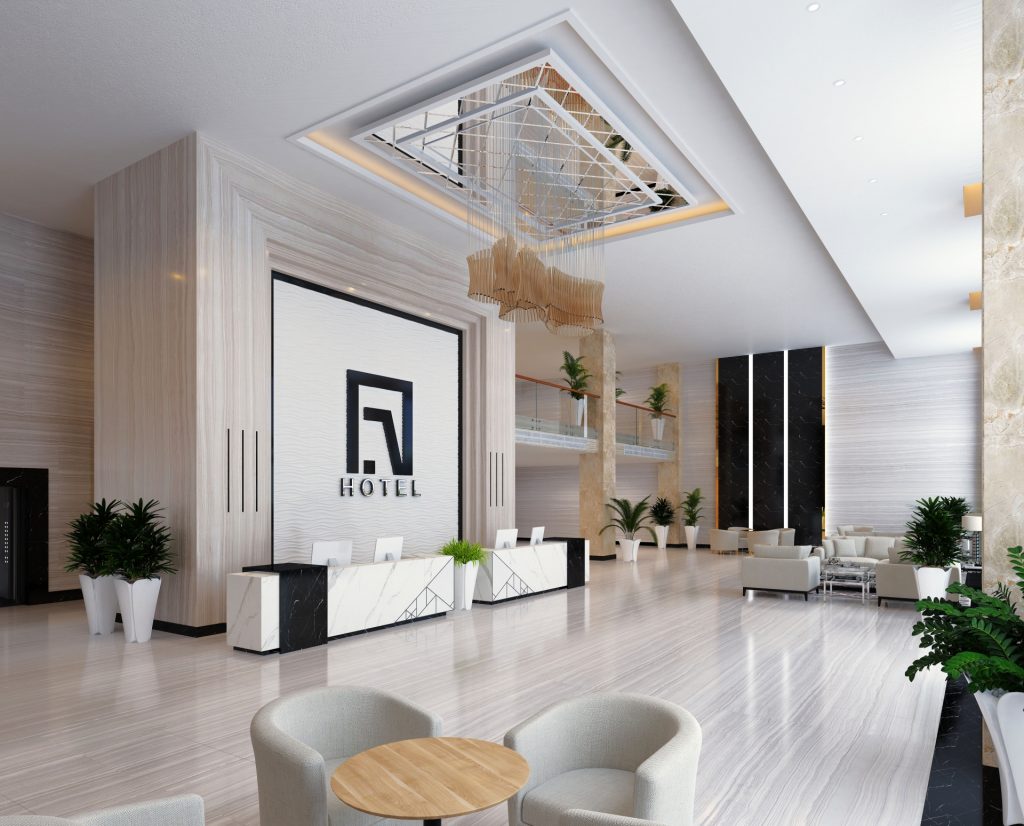
Most types of accommodation in Japan will be familiar to international visitors however several styles – including ryokan, minshuku and pensions – might be new and require a little explanation prior to booking.
Accommodation Types in Japan:
Questions to ask when booking accommodation in Japan
1. Large hotels
Like most countries, Japan has numerous large hotel chains ranging from luxury to budget in all major cities and most regions. International travelers will be familiar with many global hotel chains that have presence in Japan. You will also find many Japanese chains, often located around major train stations.
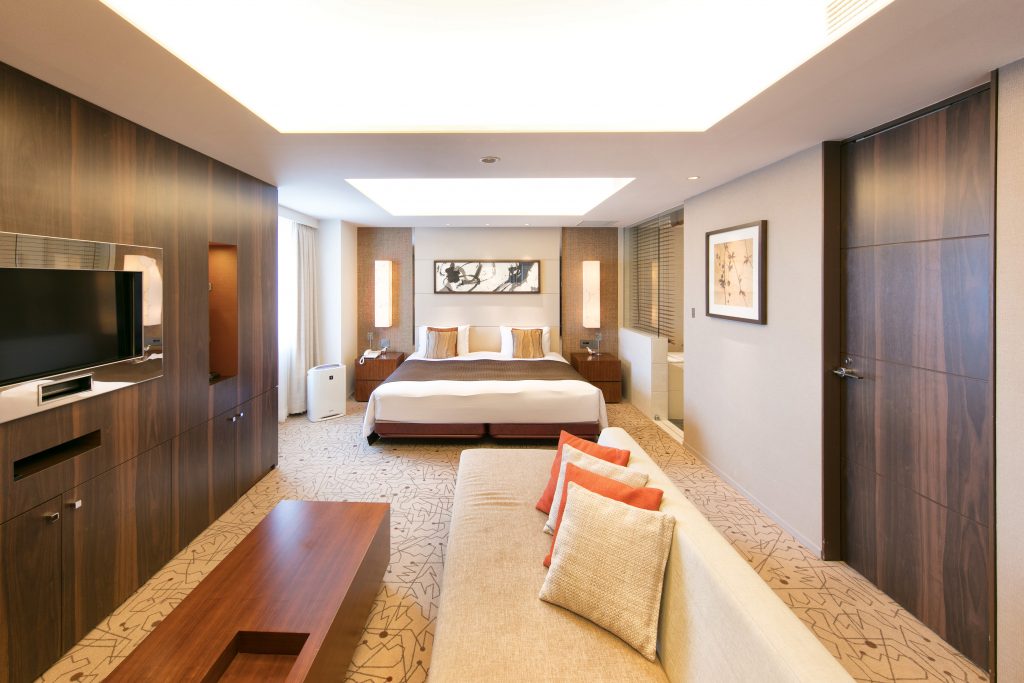
Expect Western-style bedding, private bathrooms and room service. Many large hotels will also have public baths (segregated by gender) for use by their guesthouses and in-house restaurants, along with other facilities such as gyms, pools and day spas.
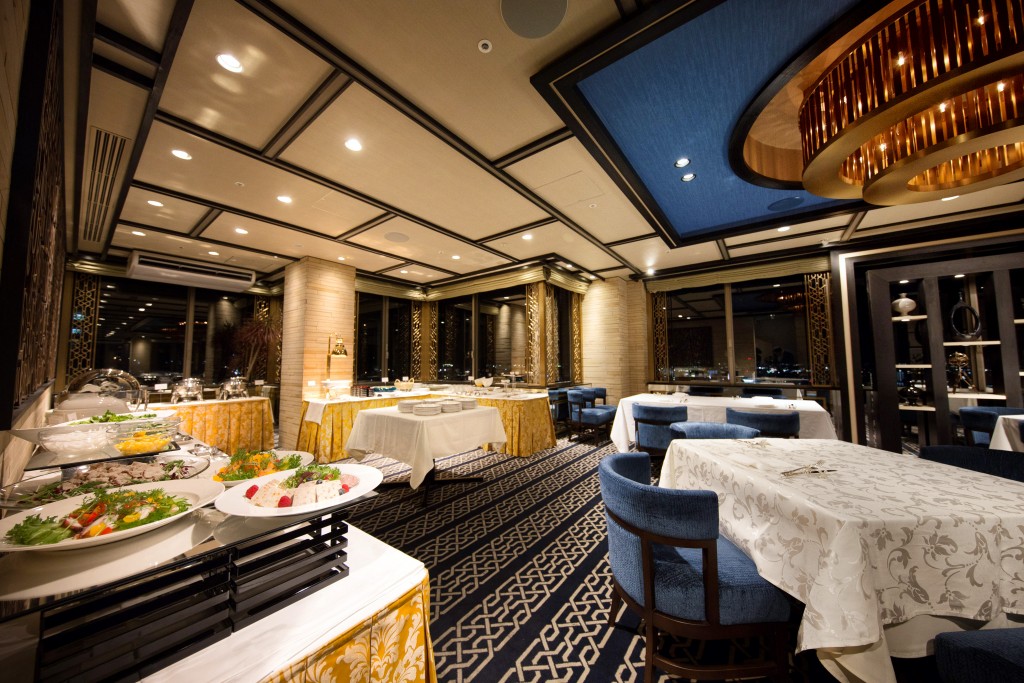
Large hotels are the most likely to have English and other foreign language-speaking staff and cater to Western tastes with their breakfast menus.
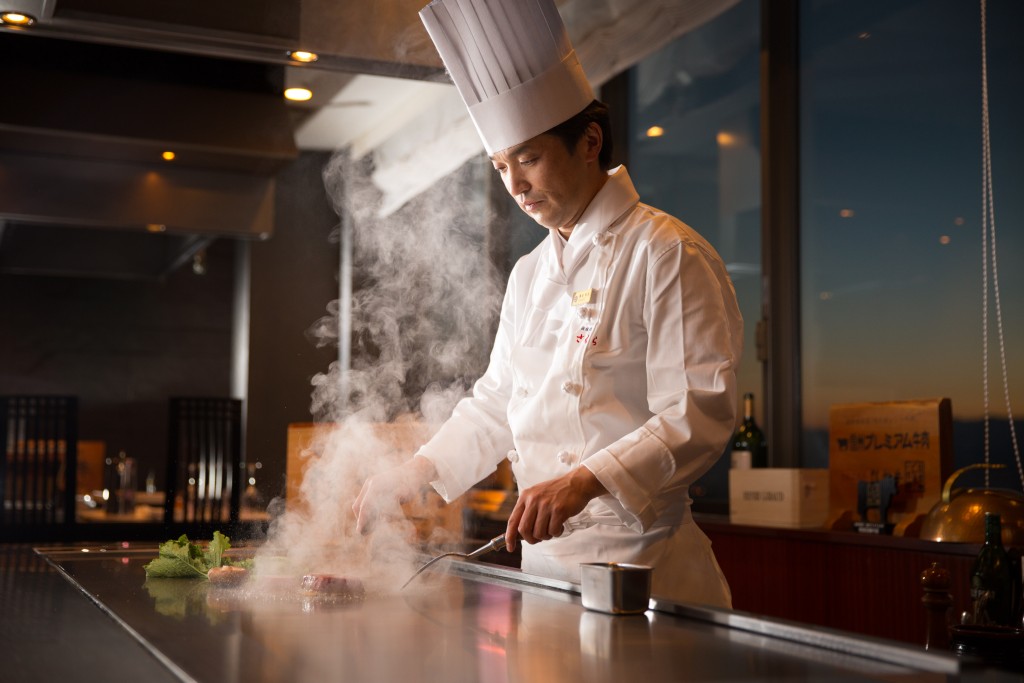
Positives: many large hotel brands will be known to international visitors, providing a sense of familiarity and confidence in their standards. Rooms will include a private bathroom and the option of room service allows guests to largely keep to themselves if they want.
2. Business hotels
Given the need for many Japanese to travel for their jobs, there are many business hotels throughout the country. Often well-located nearby train stations, business hotels will offer many of the same services of large hotels including Western-style bedding, private bathrooms and (often but not always), a small in-house breakfast restaurant.
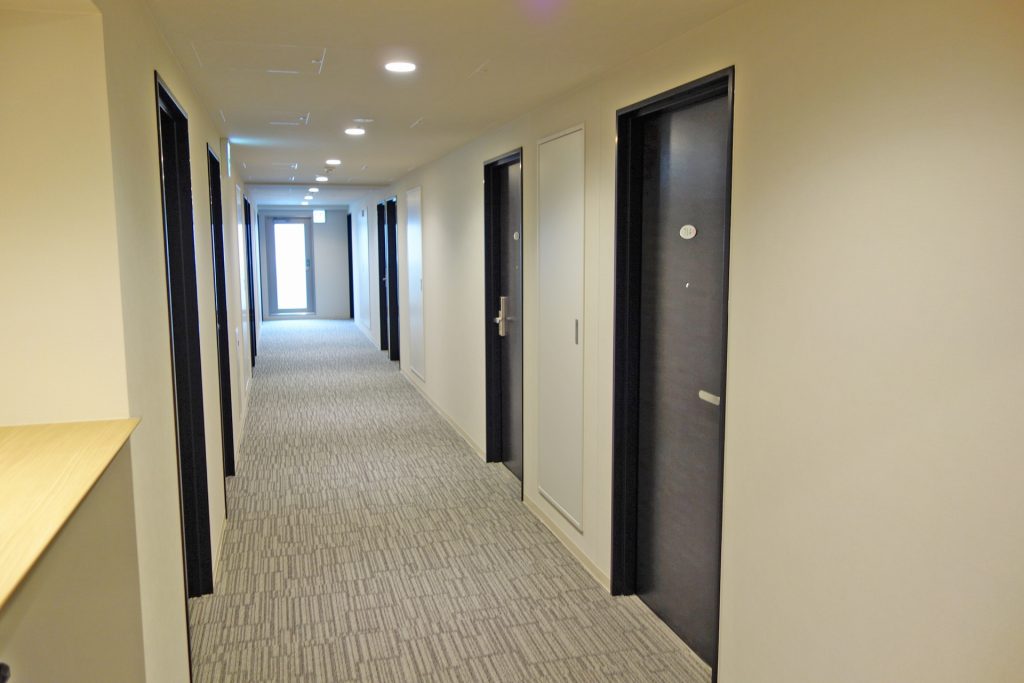
Many are attached to restaurants serving lunch and dinner and may include a public bath for the use of guesthouses.
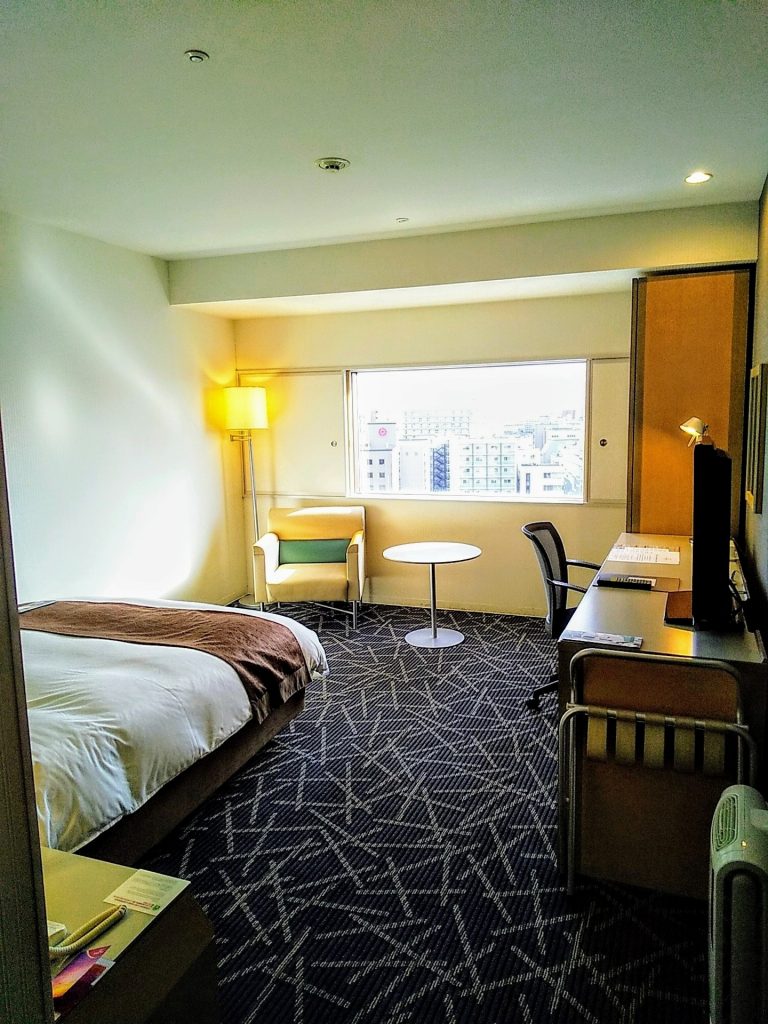
Rooms are likely to be small, making them most suitable to single travelers and couples. When located near major train stations or popular tourist areas such as Shinjuku and Shibuya in Tokyo, expect the rooms to be very small indeed. While they can be expensive, business hotels are often very well-priced making them a great option in big cities.
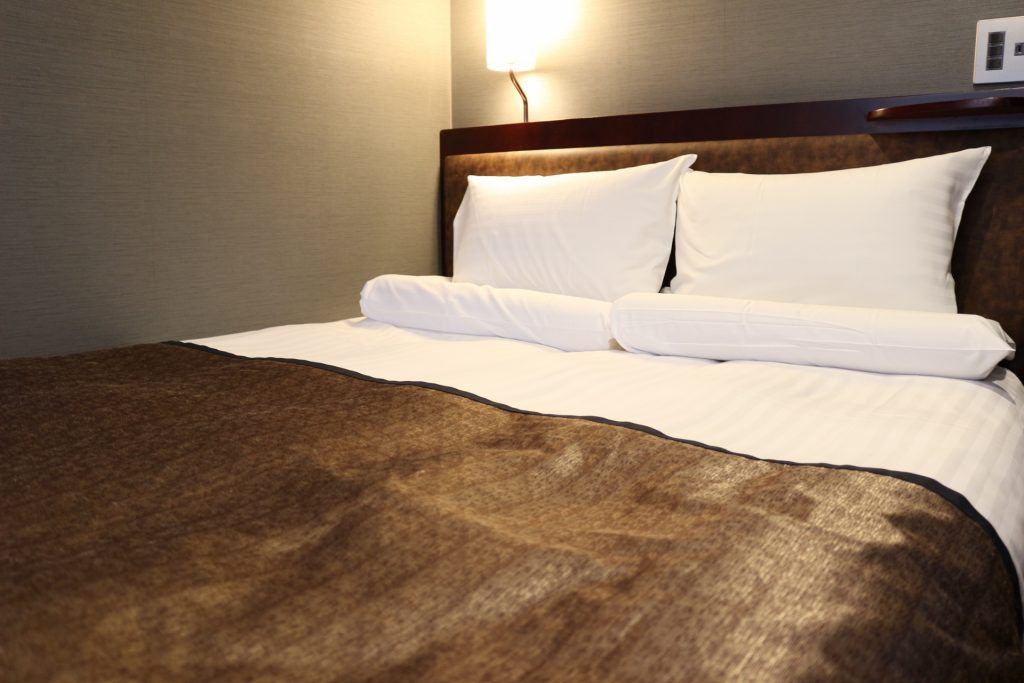
Positives: similar to large hotels, business hotels usually include a toilet and shower with small bathtub in the room allowing guests to maintain their privacy and social distancing. Space in these hotels is however likely to be more restricted including small restaurants and often no option of room service.
3. Airport & station hotels
Most major airports and train stations in Japan will not only have a lot of accommodation nearby, but regularly also have hotels inside or attached. These are particularly convenient, especially when using the shinkansen to move around Japan as you won’t need to drag luggage far before dropping it at your hotel.
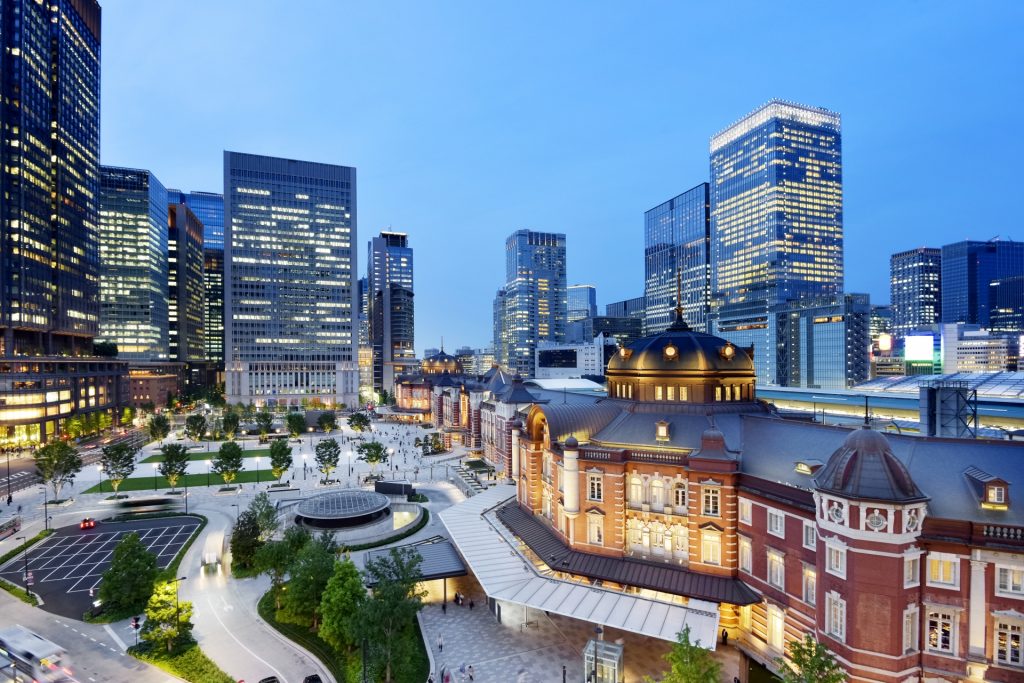
Airport and station hotels range in size and quality – with luxury, mid-range and budget available – but uniformly provide Western-style rooms, private bathrooms and are likely to have some English and other foreign language-speaking staff. They are also likely to cater to Western tastes with their breakfast menu. Given the convenience of these hotels, they are likely to be more expensive than other options.
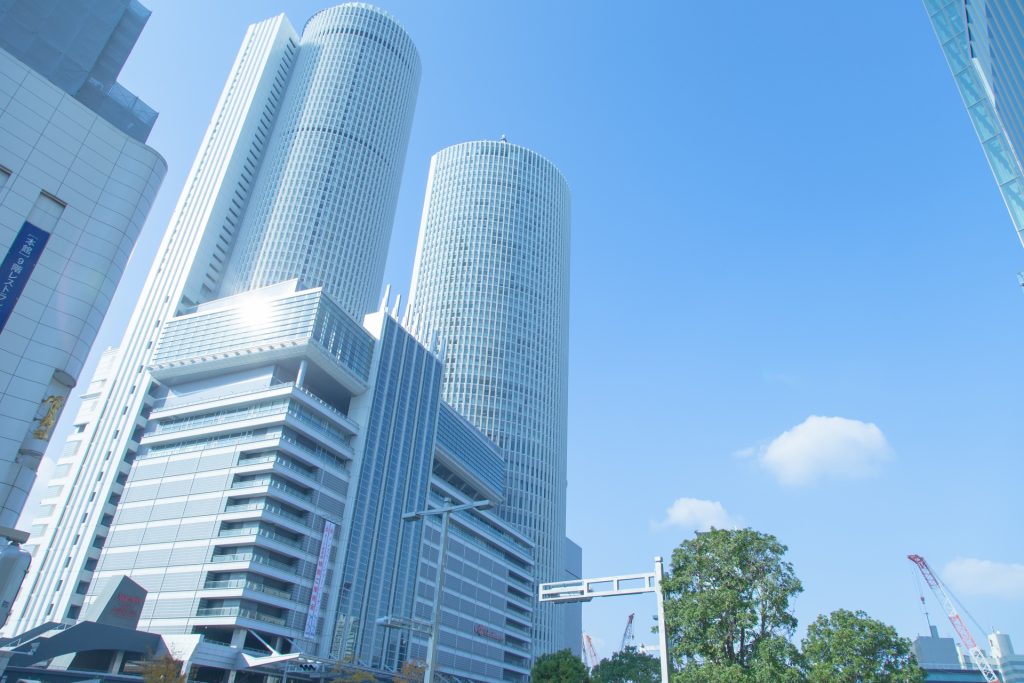
Positives: airport and station hotels can vary in type from large, luxury hotels to accommodation more like a basic business hotel. Given the variation, check the reviews carefully to know what to expect with price being a good indication of quality and service.
4. Ryokan
Also found throughout Japan, ‘ryokan’ are traditional guesthouses with Japanese-style rooms and facilities including a public bath or ‘onsen’ (hot spring) for use by guesthouses. Ryokan include the option of dinner and/or breakfast, including traditional ‘kaiseki’ (multi-course) meal service. Most guests will choose to include both dinner and breakfast in their accommodation, allowing them to completely unwind and enjoy their stay.
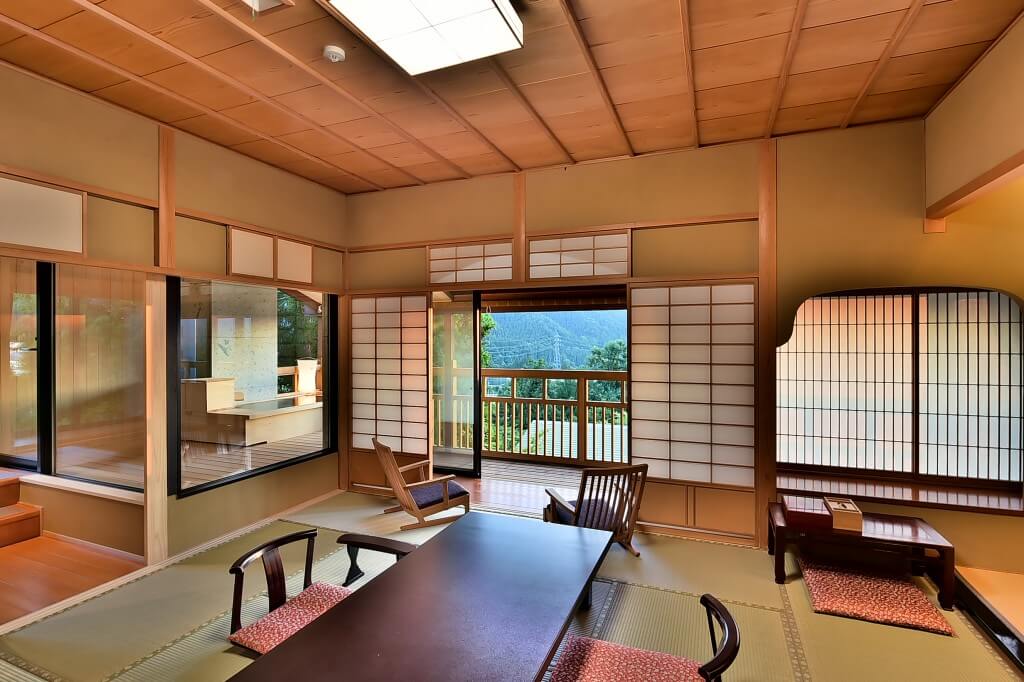
When booking a ryokan, it’s important to note that your bedding is almost certainly a ‘futon’ (on-floor) and the room furnishings will be typical of traditional Japanese design including a low table and seating. Rooms are often sparsely filled. Many ryokan only have shared bathing facilities with no private showers or bath in the room, and meals are traditional Japanese menu including breakfast.
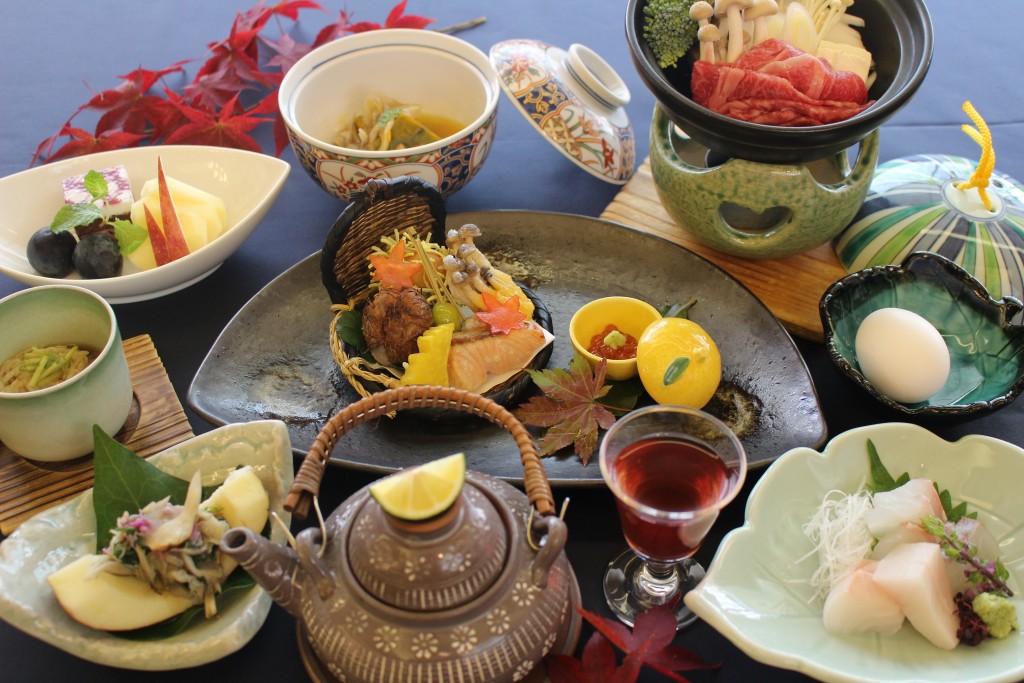
Ryokan range in quality from luxury to basic with a huge variation in pricing. It is also worth-noting that ryokan traditionally charge per person, an important point to note when booking directly through their websites. Some ryokan will have English and foreign-language speaking staff but many will not.
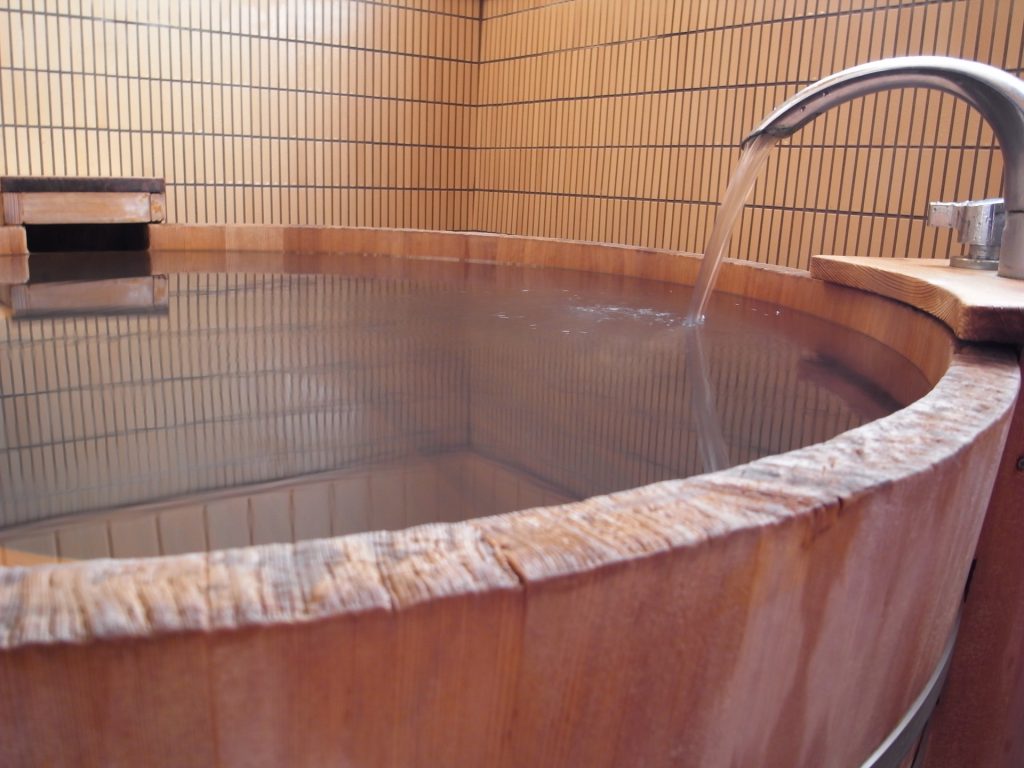
Positives: ryokan typically have far fewer rooms than hotels, meaning that you will be sharing your accommodation with far fewer people. Many ryokan (but not all) provide the option of having your meals in your room and many are family-run (for many generations). As such, the reputation of a family-run ryokan is extremely important to a proprietor and they are likely to be very focused on maintaining good hygiene and reviews.
5. Minshuku
‘Minshuku’ are also Japanese-style accommodation. Offering Japanese rooms, bedding and meals, minshuku are similar in style to ryokan but simpler. Often family-run, minshuku are unlikely to have an in-house onsen but will have shared bathroom facilities. They are also cheaper than ryokan and in some cases, can offer great value.
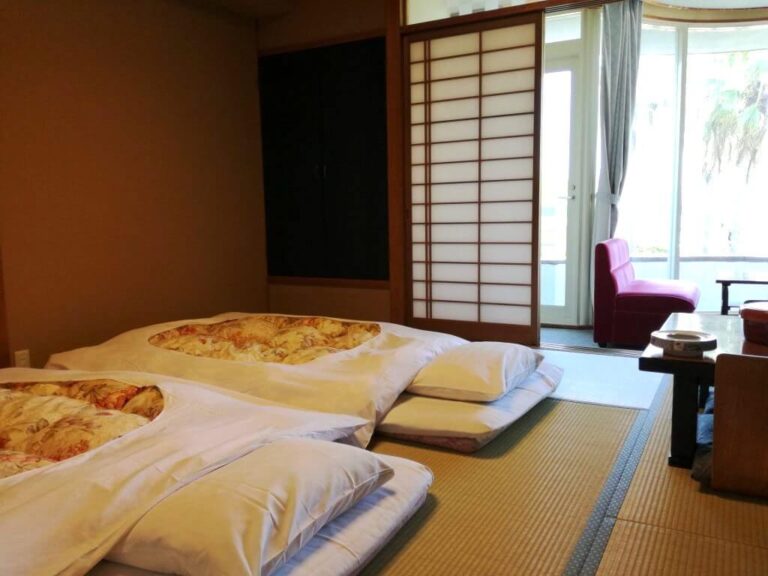
Meals will be Japanese and don’t expect the owner to speak much English unless the minshuku is in a popular tourist spot and targets foreign guests.
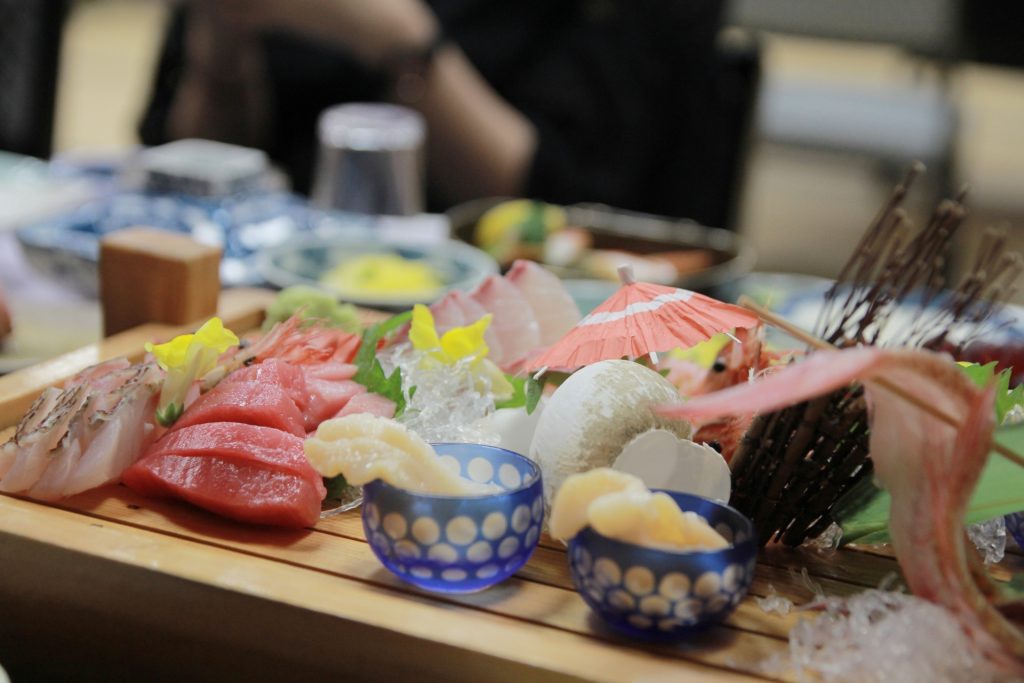
Nevertheless, the homely and relaxed atmosphere of many minshuku make them popular with travelers and they are great places to speak with Japanese.
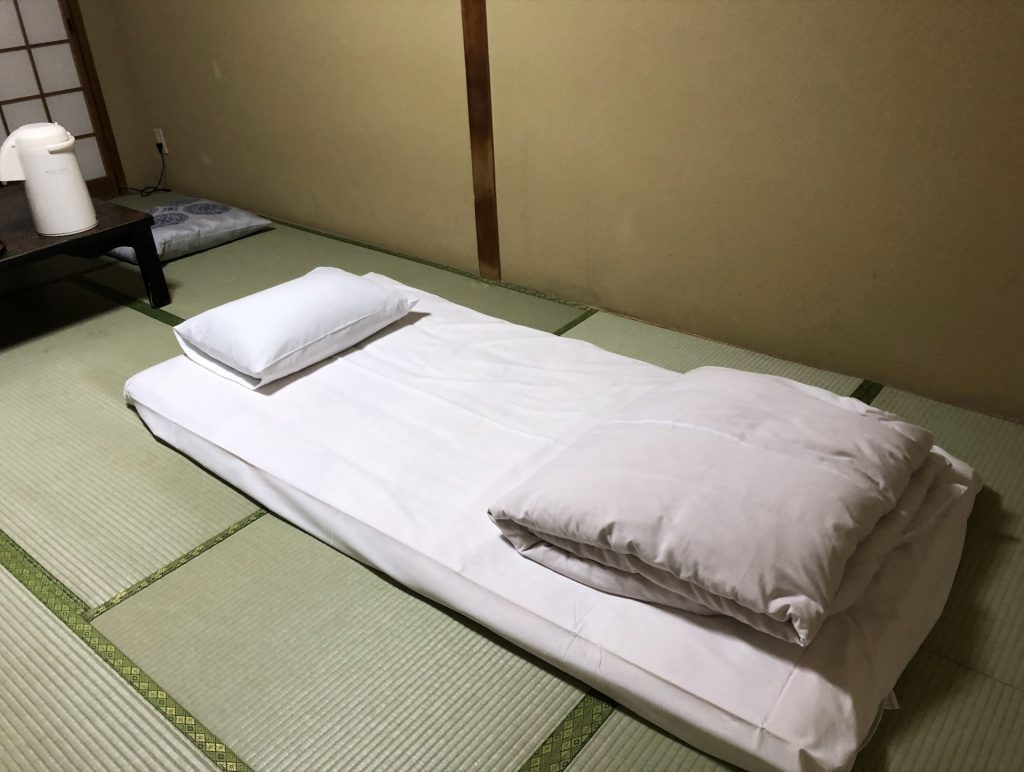
Positives: minshukus are almost certainly family-run, meaning that like ryokan, the reputation of the business is likely to be very important to the owner. Minshukus however won’t have the range of services and flexibility of a ryokan, and you will likely have to share bathroom facilities and dining area with other guests.
6. Shukubo
Known as ‘shukubo’ in Japanese, temple lodgings are a unique way to stay in and experience some of Japan’s Buddhist temples and Shinto shrines. Located in the grounds or nearby many temples and shrines, shukubo are open to guests of any faith and background and include Japanese-style rooms and bedding, vegetarian meals and (usually) the chance to join prayer ceremonies, meditation and other religious practices.
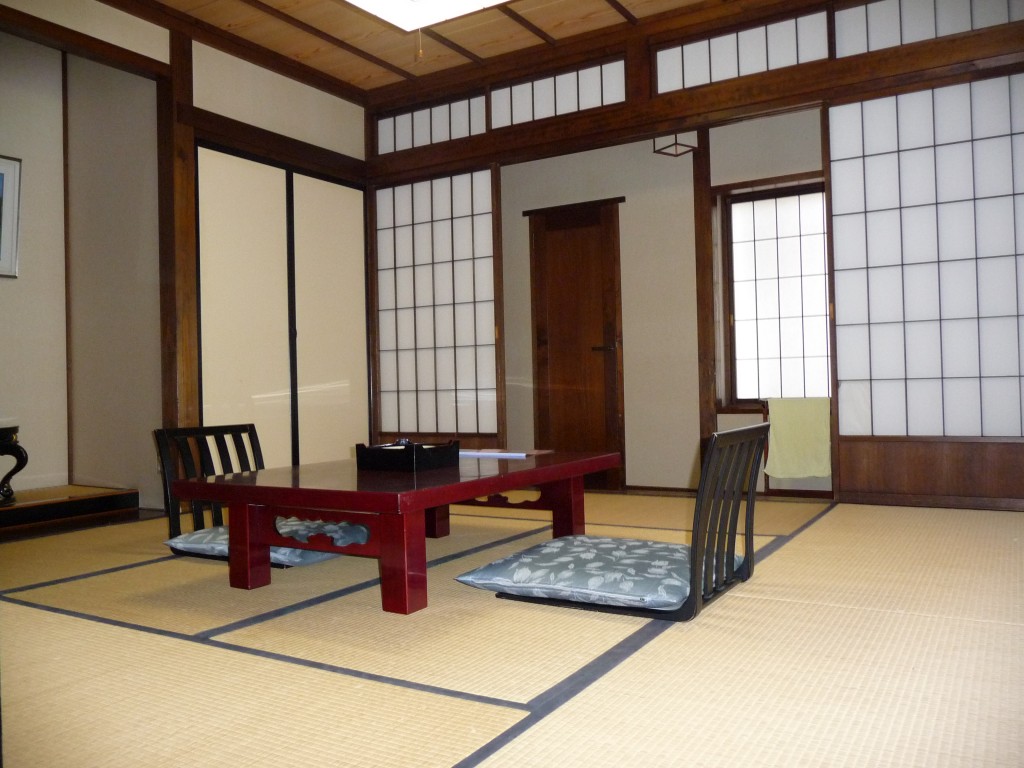
The inclusions, requirements and pricing of shukubo vary greatly depending on its location and the fame of the temple or shrine, so make sure to check the details of what’s included and conditions of stay.
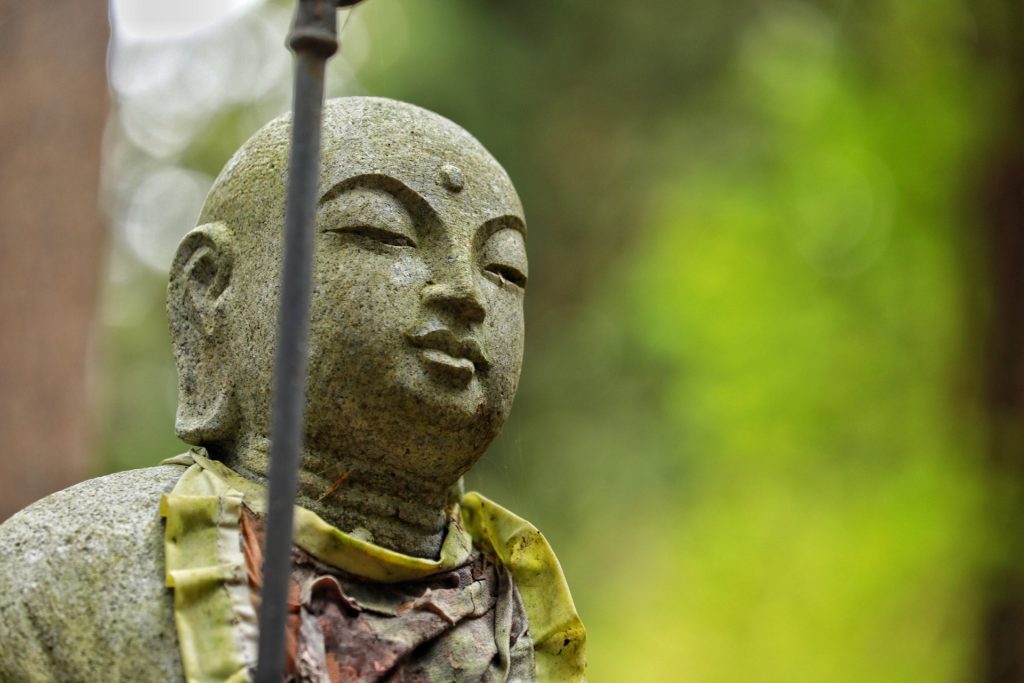
Positives: the act of cleaning is regard as a spiritual practice in both Buddhism and Shintoism therefore, as religious lodgings for temples and shrines, shukubo are likely to be exceptionally clean. They are however limited to being nearby temples and shrines so will only be available and practical in certain circumstances.
7. Pensions
Similar to minshuku, ‘pensions’ offer basic, family-run accommodation. The major difference is the style of rooms. Whereas minshuku have Japanese rooms, pensions have Western-style bedding and facilities and usually serve a Western or mixed Western-Japanese breakfast menu. Many pensions are found at or nearby the ski resorts of Central Japan.
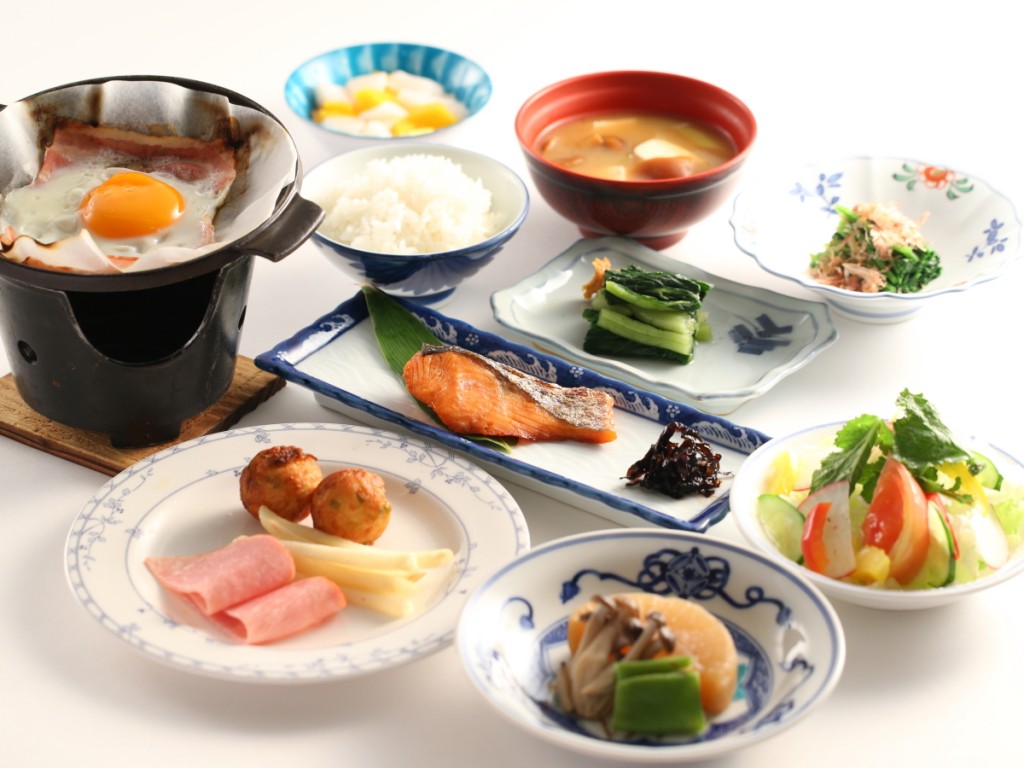
Positives: expect a similar standard to minshuku. Often family-run, many owners will take great pride in the condition and quality of their accommodation however be mindful when booking pensions in and around ski resorts as standards can vary greatly. It’s best to check a number of reviews before booking.
8. Mountain/ski lodges
As described above, many mountain and ski lodges in Japan are basically pensions. Family-run and usually only offering a small number of rooms, mountain and ski lodges in Japan typically have warm and homely atmospheres.
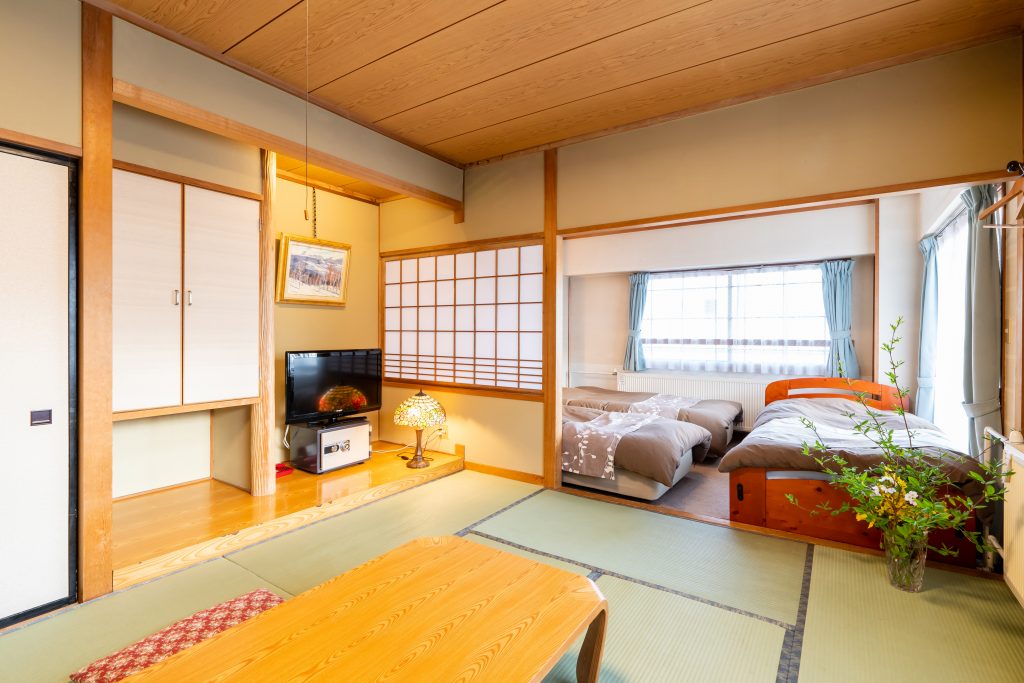
As family-run businesses, some have curfews and only provide shared bathrooms, so make sure to check before booking if that’s important to you. In comparison to Europe and North America, ski in/out lodges are not common. Another point to confirm prior to booking if that’s what you’re after.
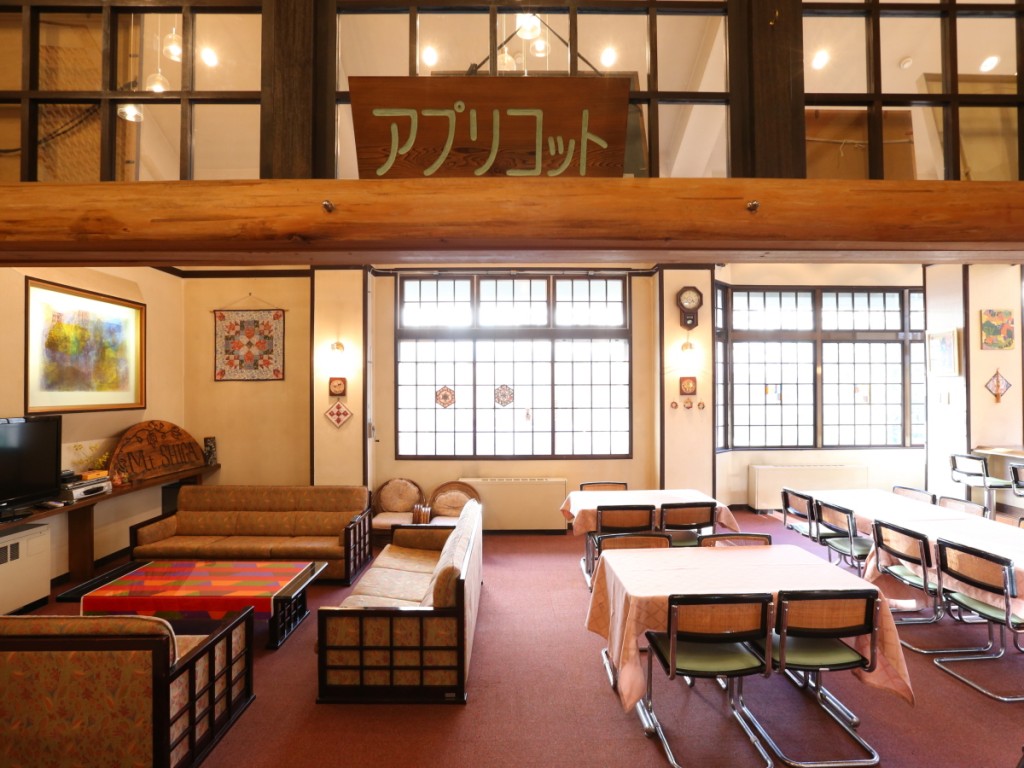
Positives: mountain-based accommodation can vary greatly, especially in and around ski resorts. Read the reviews and try to determine who the accommodation is aimed at. Lodges with a large number of Japanese reviews are likely to be aimed at domestic travelers, and should be quite clean and quiet at night. Those with a large number or majority English reviews, may well be aimed at, owned and run by foreigners. While this isn’t necessarily a negative, accommodation will only be as clean as guests allow it to be, so if quiet and cleanliness are important to you, do you research and choose a lodge which will give you that.
9. Hostels/backpacker inns
A great option for budget conscious travelers, hostels and backpacker hotels in Japan mostly offer dormitories – usually segregated by gender – with a couple of private rooms also available. Showers and toilets will be shared and the communal area is likely to be small. Basic but cheap, don’t expect much privacy and your comfort is reliant on the consideration and cleanliness of other guests. Many women-only hostels are found throughout Japan.
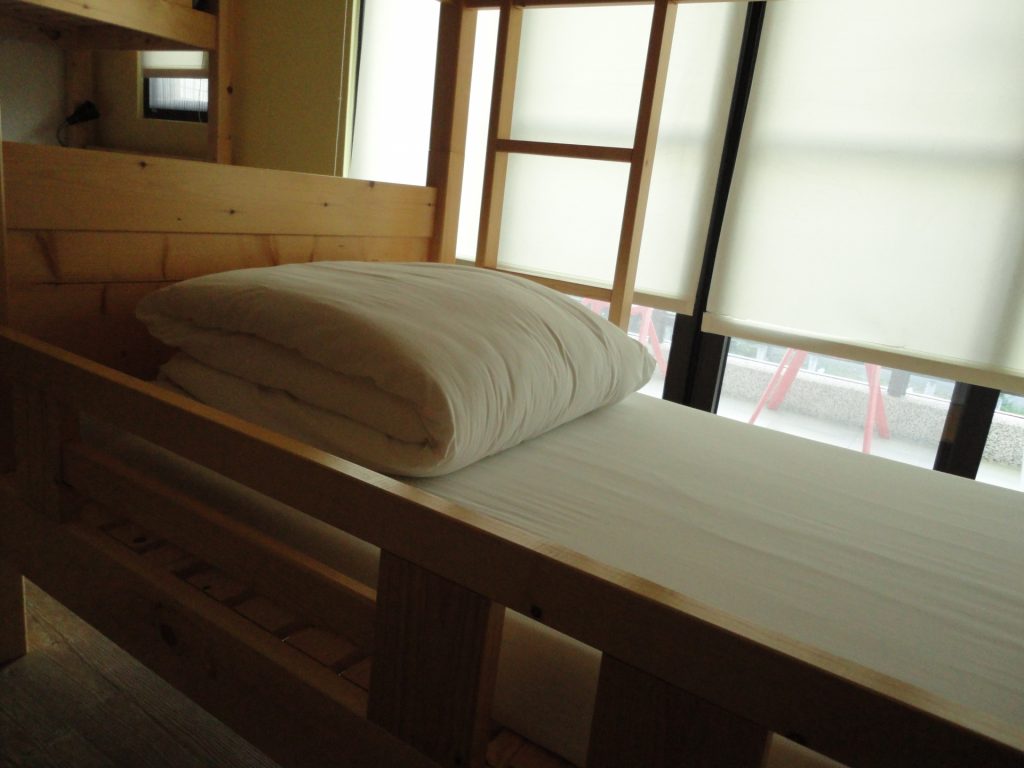
Positives: the good news is that given the Japanese preoccupation with hygiene, even if a place is basic or cheap, it is still likely to be clean. As such, many hostels maintain very good standards but they are after all, hostels and will only be as clean as guests allow them to be. The major draw back with any hostel will be lack of space and shared bathroom facilities. If this important, choose a private room.
10. Love hotels
A common sight around the entertainment areas of cities, love hotels are a somewhat uniquely Japanese phenomenon. With rooms available by the hour or for the night, the fundamental point of these hotels should be apparent. Servicing couples who want some time to themselves – which in a country where people traditionally lived with their parents until they married makes sense – love hotels come in all forms with widely varied pricing including luxury, expensive accommodation.
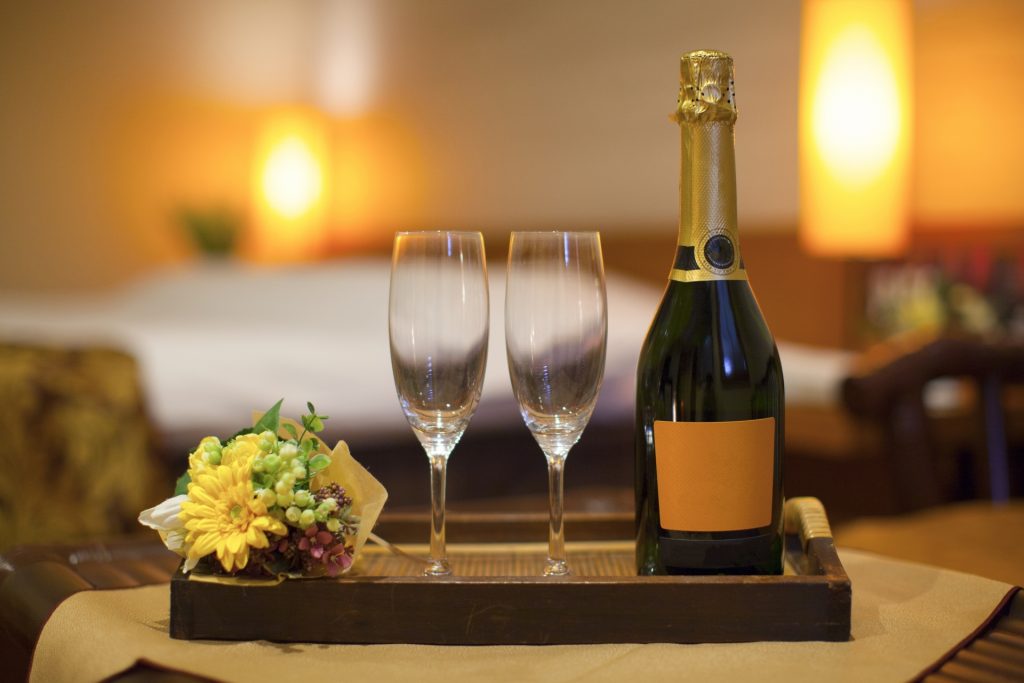
While not for everyone, these hotels are found throughout Japan and especially in the major cities, can offer great value and convenience should you want to enjoy the nightlife and not worry about the last train – which can be surprisingly early in Japan. The more expensive hotels are usually very well-appointed, clean and offer a range of in-house services including room service, in-room karaoke, gaming systems and more. You might be surprised by just how comfortable your stay can be.
Positives: love hotels offer convenient and often cheap accommodation in the heart of big cities however they aren’t for everyone. They offer a lot of privacy with everything self-contained in the room but by their nature, rooms are used more frequently by more guests than other accommodation so cleanliness is not assured.
11. Capsule hotels
Another uniquely Japanese phenomenon which has, in recent years, spread to other countries, capsule hotels are as they are named – hotels in which you sleep in a capsule. Like love hotels, capsule hotels vary greatly in quality and price but when choosing the upper end of the market, are very clean, comfortable and enjoyable to stay in.
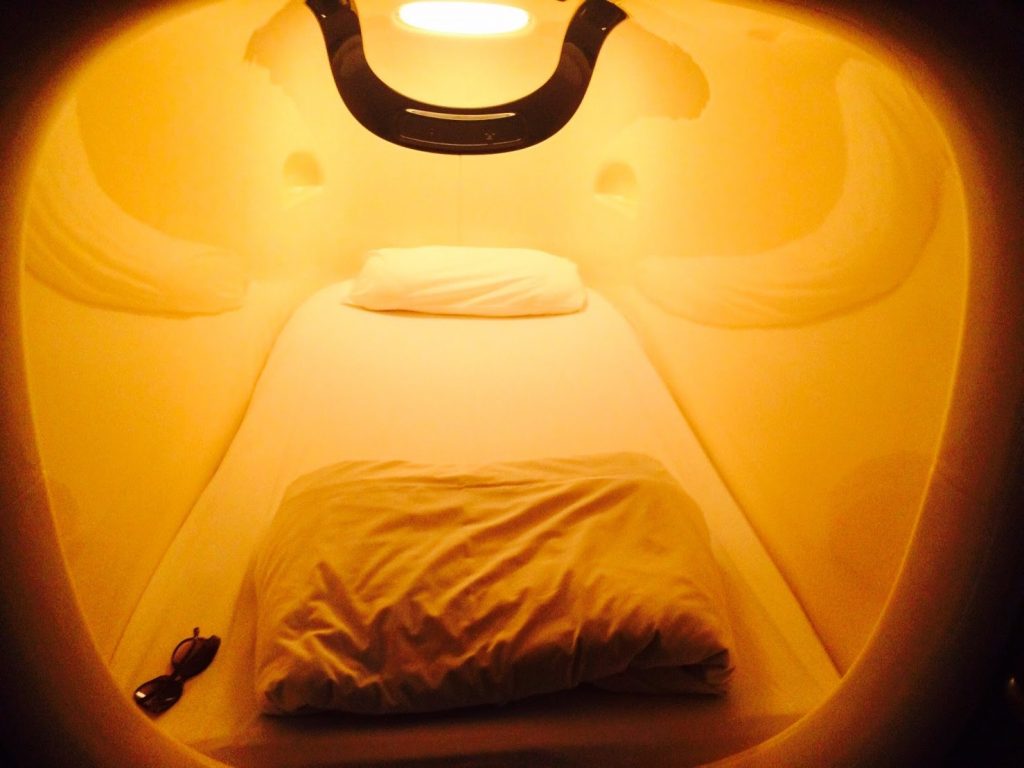
Sleeping areas are typically segregated by gender and relatively spacious inside, allowing guests to sit-up and with television, air-conditioning, reading lights and sound-proofing allowing a surprisingly good sleep. Toilet and shower facilities are shared and there is likely to be a small communal area with basic facilities including microwaves, hot water, etc.
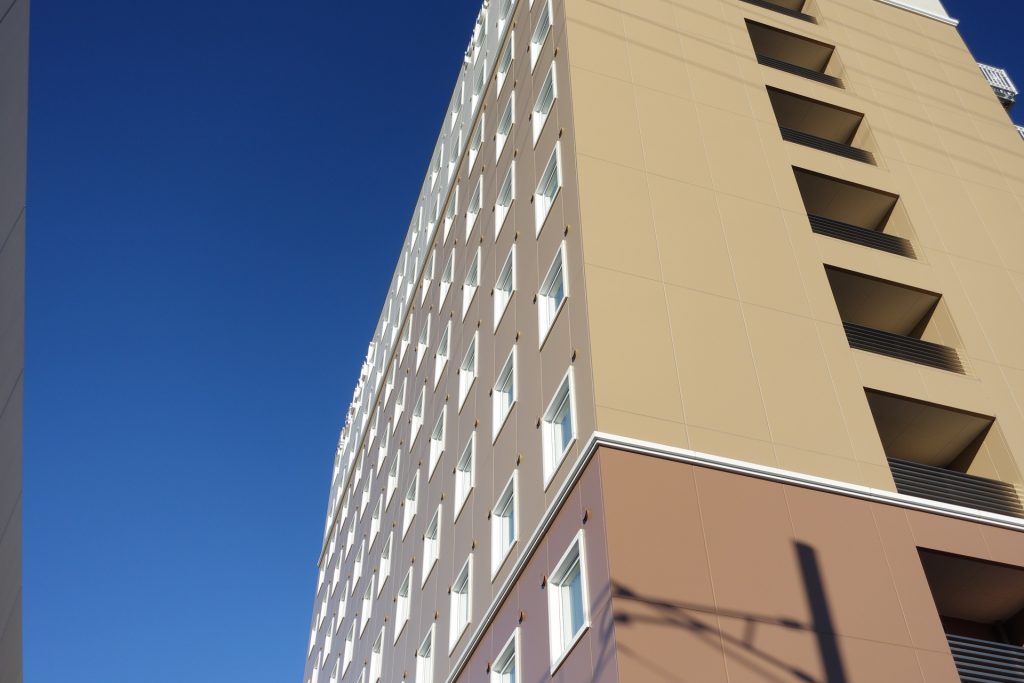
Positives: capsule hotels also experience heavy use and afford little privacy. Probably not a great option at this time if concerned about hygiene and social distancing.
12. Private accommodation
Sourcing private accommodation is an increasingly popular for international visitors. A range of websites provide accommodation throughout the country, from basic to luxury varying greatly in quality, size, location and price. While this is certainly a good option for some travelers be careful to check the exact conditions that apply.
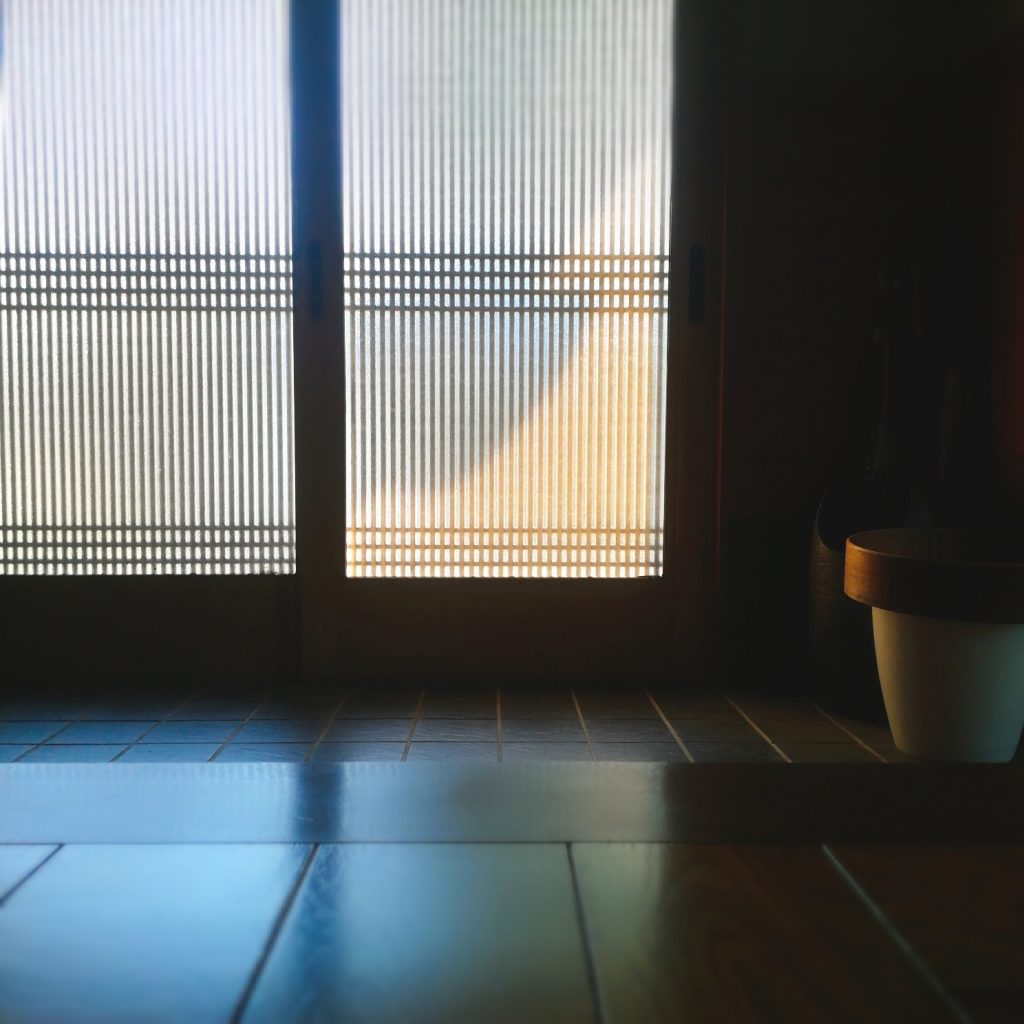
Read reviews carefully and note the following – in order to register a property of many websites, owners need the permission of the neighbouring properties as in recent years, there has been an increasing number of complaints about private properties in tenanted buildings being rented to travelers. If you are asked not to discuss your presence with neighbours or to say that you are a friend of the owner, the property may well be operating outside of regulation. Seek-out properties that are properly registered and operating according to the guidelines.
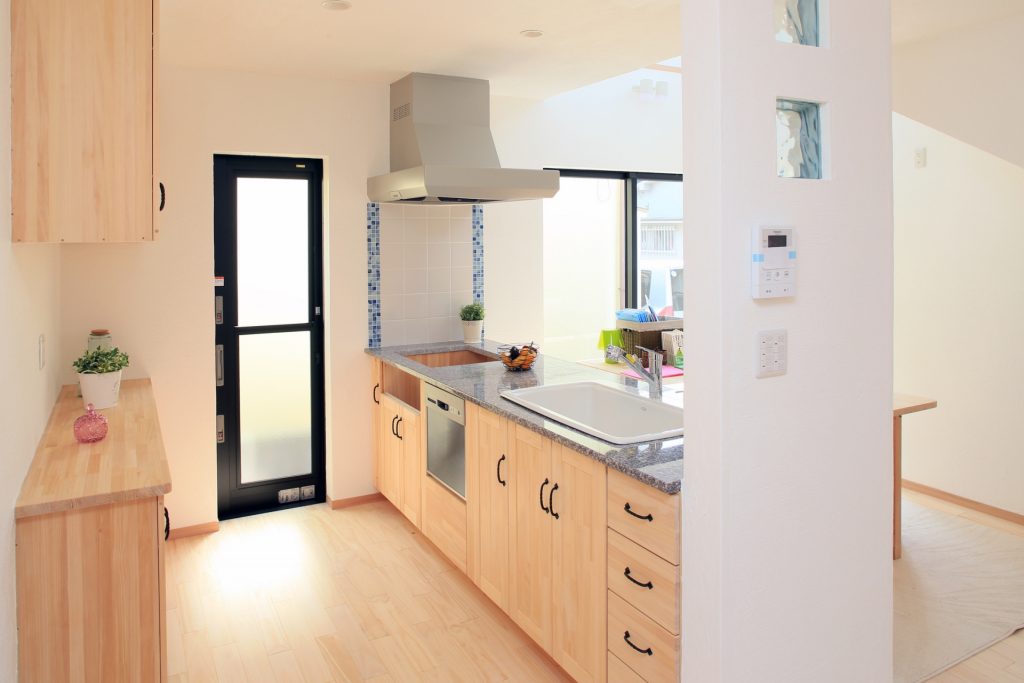
Positives: the big advantage of private properties are that they are completely self-contained and you will not be sharing with other guests. They are however private raising the question of how good are the hygiene standards? The best advice is to choose accommodation with lots of positive reviews and/or one where the owner is nearby. Having direct contact with the owner is a good reassurance of their standards.
Questions to ask when booking accommodation in Japan:
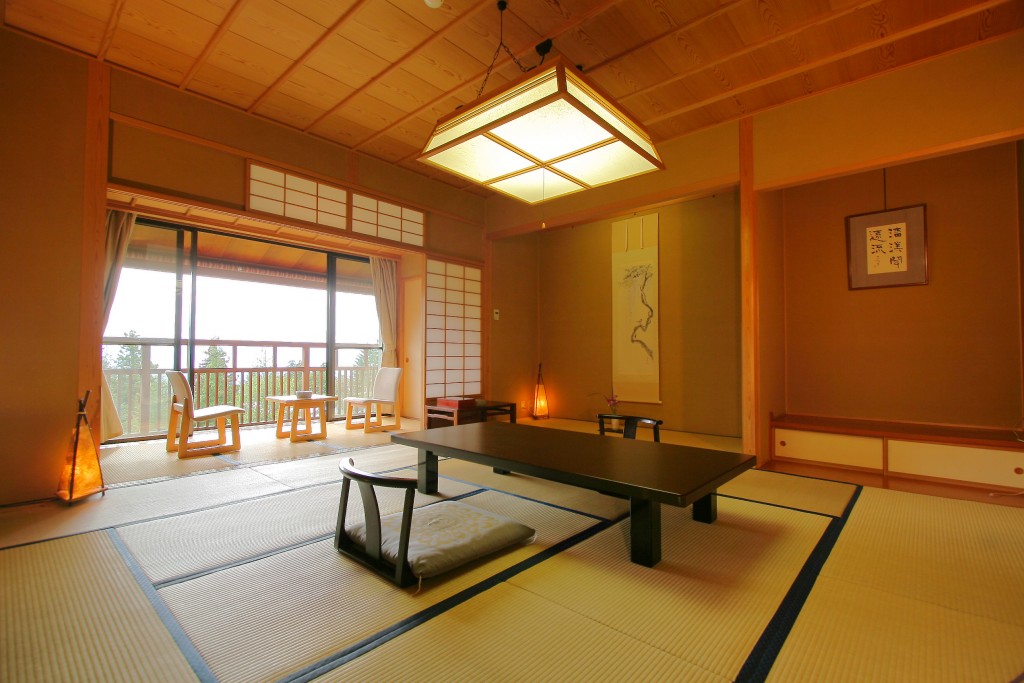
Prior to booking your accommodation, asking the following questions will help avoiding any surprises upon check-in or check-out:
How clean is the property?
As mentioned above, Japan is one of the cleanest countries in the world and most Japanese maintain very strict hygiene practices. This carries over to accommodation, which even when basic, will usually be focused on keeping things as clean as possible. While it can be hard to really assess the cleanliness of a property before arrival, reading as many reviews as possible will allow you to form an accurate understanding. Japanese guests in particular will have an eye for how clean their accommodation is, so copying and popping Japanese reviews into an online translation website might reveal just how clean the hotel or property is.
Is the room charge per person?
The more traditional types of accommodation in Japan, such as ryokan, typically charge per guest rather than per room. This stems from their provision of meals, ‘yukata’ (light kimono) and other services for each guest i.e. the greater the number of guests, the greater the service they need to provide. As a result, ryokan and some other hotels charge person guest. When booking your accommodation make sure to check whether the price is per room or per guest, particularly when selecting to pay in-person.
Are there any additional/surcharges?
Some hotels – again, most typically ryokan – will have surcharges that apply to some guests. The most common example is surcharges that apply to young children who will not be charged for inclusion on booking websites but instead, are subject to an additional charge upon check-in or check-out. Make sure to read the fine print and check in advance when traveling with children.
Do they accept payment by international card?
When planning to pay in-person i.e. upon check-in or check-out, make sure to confirm that your accommodation accepts international cards. This shouldn’t be a problem at large hotels, in cities or popular ryokan however it can catch-out guests at some small, especially family-run, accommodation that only accept cash (even from Japanese guests). When booking accommodation which includes payment on-site, make sure to check this important point prior to arriving.
Will I need to share a bed with my children?
Travelers with children are also often caught-out by the requirement to share a bed with their child – despite having included the total number of guests at time of booking! This most commonly occurs at hotels in large cities, particularly in congested areas around train stations. It is simply a matter of limited floor-space and that many hotels, especially business hotels, are not designed for families. The hotel assumes the parent knows this and is happy to sleep in the same bed as their child – something which is common for Japanese when traveling with kids – so make sure to check in advance. Avoid business hotels and if necessary, send an email to check the bedding arrangement in advance.
Does my room include dinner and/or breakfast?
Traditional hotels including ryokan and minshuku have the option of including dinner and/or breakfast. Make sure you to include what you want at time of booking. While you may be able to add breakfast for the following day upon check-in, you almost certainly won’t be able to add dinner on the same day as the ingredients and menu will already have been arranged. This is most important when booking your accommodation in rural and more isolated areas, where other dinner options may not exist.
Can the accommodation cater for my dietary needs?
Hotels and accommodation in large cities can likely cater to vegetarian and pescatarian diets however even in Tokyo, travelers requiring vegan, gluten-free and other menus may struggle. Outside of the major cities, finding accommodation that caters to such needs can be very challenging as many Japanese don’t yet have an understanding of such requirements.
For travelers requiring specific diets and especially those with serious allergies, make sure to check in advance. It is worth-noting that fish stock and products are ubiquitous in Japanese cooking therefore even if you are told that the meal contains no animal products, it may still be in there. Be understanding of this and that if there is any confusion, it is most likely a genuine misunderstanding.
For travelers with serious allergies, it is worthwhile having Japanese text on your phone or on a card that you can show at your accommodation to ensure they are clear about what you cannot eat. Don’t assume that a verbal explanation is enough.
What type of bedding is included?
Of all questions to ask, this and the following question are perhaps the most important. Traditionally, Japanese sleep on ‘futon’ (on-floor bedding) with relatively firm pillows. For first-time visitors to Japan or people simply not accustomed to these sleeping arrangements, entering your room to discover a futon rather than a Western-style bed can be shock and ruin your stay. Again, check-in advance and note that minshuku and shukubo will almost certainly only have on-floor bedding. The majority of rooms at ryokan also include Japanese-style bedding however higher-end ryokan often have some rooms with Western bedding. If this is important to you, make sure to confirm and book in advance.
Does my room have a private bathroom or will I need to share?
Another big one! A lot of traditional accommodation in Japan includes shared bathroom facilities, particularly minshuku, pension, hostels and cheaper hotels. Make sure to check what’s included in your room prior to booking.
Does the accommodation have a public bath or onsen?
Many hotels and other accommodation in Japan will have shared baths and showers. Segregated by gender, they are completely normal in Japan and most Japanese are very used to sharing these facilities. For international visitors, it can be less comfortable. If it’s an issue for you, check your room details prior to booking to ensure you have a private toilet and shower.
Having said that, it’s also worth-noting that accommodation in Japan, especially ryokan, are often sought-out for their in-house onsen (hot spring). We encourage you to try at least one onsen while in Japan, and there is no better way to do so than in the comfort and relaxation of a ryokan. Even if your room has its own bathroom, enjoying an onsen is perhaps the quintessential Japanese experience – especially when combined with a ‘kaiseki’ (traditional multi-course) dinner.
An important point to note, many ryokan have a ‘kashikiri’ (private onsen) available for use by guests. It varies between ryokan with some providing their kashikiri free of charge while others apply a surcharge. Using a kashikiri is a good option if you feel uncomfortable to share with others or want to enjoy an onsen as a couple or family.
Is my room really non-smoking?
While more and more accommodation in Japan is now completely non-smoking, some hotels, ryokan, pensions and minshuku continue to offer smoking and non-smoking rooms. Frustratingly, some operators don’t see a problem with your non-smoking room having been used as a smoking room earlier in the week. While this thankfully more-or-less limited to cheaper accommodation and becoming uncommon, it can still occur. If this is important to you, avoid cheaper accommodation and choose operators with a strict non-smoking policy.
Is there a curfew?
Some accommodation will have an evening curfew. Typically limited to some family-run businesses, check with the owners of small ryokan, minshuku, pensions, hostels and ski lodges to confirm if there is a time you must come back by.
Do the staff/owners speak my language?
Large hotels and those located in or nearby major train stations and airports are likely to have some English and other foreign language-speaking staff. Outside of those, it really varies. When staying in family-run or small accommodation, don’t expect much English or other languages unless it is located in a popular tourist spot and the owner is targeting foreign guests.
While foreign language services can be limited, don’t let this put you off! Japanese are usually endlessly patient and will find a way to communicate with you – after all, we live in an age of translations apps so as long as you have a phone, you’ll be able to get by without a problem and most likely, enjoy the whole experience!
Does the accommodation offer a pick-up/drop-off service?
A lot of accommodation in Japan, especially ryokan, offer free pick-up and drop-off services at nearby train stations. This is a great help and well-worth booking if available.
What is the refund/cancellation policy?
As always, check the cancellation and refund policy prior to booking. Many operators have been applying generous cancellation policies in response to COVID-19 and hopefully, will continue to do so. Given the going impact of the virus, it is worth checking what refund you will be eligible for should COVID-19 disrupt your travel plans.






